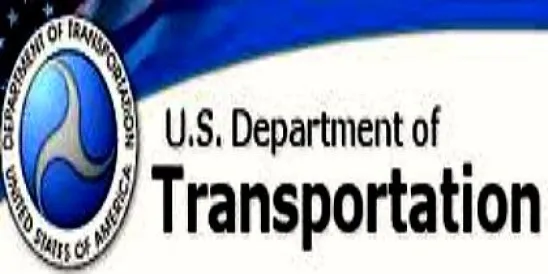On April 1, 2011, the U.S. Court of Appeals for the D.C. Circuit issued an opinion in CSI Aviation Services, Inc. v. U.S. Department of Transportation,[1]in which it found that the Department of Transportation (DOT) violated the Administrative Procedure Act (APA) when the DOT failed to justify its authority to issue a cease-and-desist letter to CSI ordering CSI to terminate its business contractual relationships with various federal agencies.[2]
The CSI case is significant on many levels. First, the case is the first successful challenge of the scope of DOT’s consumer protection regulatory authority and it established the first precedent limiting DOT’s broad interpretation of what constitutes “common carrier” in the context of the definition of “air transportation”. Second, the case involved an inter-agency dispute involving the General Services Administration (GSA), which strongly disagreed with DOT’s position on having the authority to regulate CSI’s ability to enter into government contracts with various federal agencies. Finally, the case is significant because the court held that the DOT does not possess the authority to interfere with business relationships between the federal government and air charter brokers unless and until the DOT provides a reasonable explanation for its actions.
Background
Since 2003, CSI has been under contract with the GSA to broker air charter service for various federal agencies. On March 10, 2009, CSI won a competitive bid to renew its status as a GSA contractor through 2014. A few days prior, on March 6, the DOT sent CSI a letter requesting information to determine whether the company was engaging in “indirect air transportation” without the certificate of authority required by the Federal Aviation Act (FAvA). After the company provided the requested information, the DOT sent another letter, stating that based on the information CSI provided, CSI was acting as an unauthorized indirect air carrier in violation of the FAvA with respect to business transacted via its GSA schedule listing. The DOT also stressed that violations of the FAvA constitute unfair and deceptive practices and unfair methods of competition in violation of 49 U.S.C. § 41712.
Six other companies received similar letters. All six complied by terminating their status as contractors for GSA. Convinced that the DOT was exceeding its statutory authority, CSI alone chose to challenge DOT’s determination, asking the DOT to withdraw the cease-and-desist letter on the grounds that the Act requires a certificate of authority only for companies that operate “as a common carrier,”[3]and that CSI’s charter flights for the federal government are not common carriage.[4]
On November 25, 2009, seeking to avoid shutting down its business, CSI submitted a petition to DOT for an emergency exemption from the certification requirement. GSA supported CSI’s petition and in a letter to the DOT GSA explained at length why the Act’s certification requirements for common carriage should not apply to government contracts. “Acquisition [of air service] by the Federal Government . . . is distinct in several ways from acquisition in the private sector and does not present the consumer protection related concerns typically at issue in the private sector.”[5]GSA also added that Federal agencies which purchase air charter broker services are protected from unscrupulous contractors in a number of ways.[6]Although DOT granted CSI a temporary exemption, it indicated that it “remain[ed] of the view that . . . the provision of air services for U.S. Government agencies through the GSA contracting system constitutes an engagement in air transportation, necessitating that brokers conducting such business hold economic authority from the Department to act as indirect air carriers.”[7]
The Court’s Decision
The primary issue in the case was whether DOT properly concluded that air charter brokers that operate under GSA contract engage in indirect air transportation and therefore require certification from DOT despite the statutory provision that requires certification only for those who provide air transportation “as a common carrier.”
Initially, DOT argued that its letter was not a “final order” and that the court did not have jurisdiction. The court, however, rejected the DOT’s position and held that the letter was indeed an order because (1) it marked the consummation of the agency’s decision making process; (2) it was not merely of a tentative or interlocutory nature; and (3) the order was an action in which “rights or obligations have been determined” or “from which legal consequences will flow.”[8]The court noted that CSI was faced with a choice between costly compliance and the risk of prosecution. The court also stressed that “an agency may not avoid judicial review merely by choosing the form of a letter to express its definitive position on a general question of statutory interpretation.”[9]
The court stressed that “at the very least, the DOT’s letter cast a cloud of uncertainty over the viability of CSI’s ongoing business. It also put the company to the painful choice between costly compliance and the risk of prosecution at an uncertain point in the future—a conundrum that we described in Ciba-Geigy as “the very dilemma [the Supreme Court has found] sufficient to warrant judicial review.”[10]The court reasoned that the DOT’s action was sufficiently burdensome to make six other GSA contractors terminate their air charter operations for fear of prosecution. The court stressed that “having thus flexed its regulatory muscle, DOT cannot now evade judicial review.”[11]
Next, the court explained why the DOT’s actions violate the Administrative Procedure Act. Specifically, the court explained that the fundamental question in reviewing an agency action is whether the agency has acted reasonably and within its statutory authority. The agency must not only adopt a permissible reading of the authorizing statute, but must also avoid acting arbitrarily or capriciously in implementing its interpretation,[12]which requires the agency to “take whatever steps it needs to provide an explanation that will enable the court to evaluate the agency’s rationale at the time of decision.”[13]In the CSI case, the DOT simply failed to explain why the Federal Aviation Act requires a certificate of authority for air charter brokers operating under GSA contract.
The court focused on the definition of air transportation under the Federal Aviation Act and stressed that the Act states that “an air carrier may provide air transportation only if the air carrier holds a certificate issued under this chapter […] The term “air carrier” means “a citizen of the United States undertaking by any means, directly or indirectly, to provide air transportation.”[14]The DOT’s position was that, as a broker of charter flights for the federal government, CSI was engaged in the indirect provision of “air transportation.” But the DOT’s reading failed to engage with the special statutory definition of that term. Under section 40102(a)(5), “‘air transportation’ is defined to include ‘interstate air transportation,’ which in turn means the interstate ‘transportation of passengers or property by aircraft as a common carrier for compensation,’ id. § 40102(a)(25) (emphasis added).”[15]“Common carrier” refers to a commercial transportation enterprise that “holds itself out to the public” and is willing to take all comers who are willing to pay the fare, “without refusal.”[16]Some type of holding out to the public is the essential requirementof the act of “provid[ing]” “transportation of passengers or property by aircraft as a common carrier.”[17]
The court relied heavily on the fact that CSI performs under its contract with the GSA as a dedicated service provider, not as a common carrier. Under the GSA contract, CSI provides charter service to government agencies only, not to all comers. Thus, within the scope of the contract, CSI does not appear to provide “transportation of passengers or property by aircraft as a common carrier.”[18]If CSI is not a common carrier under its GSA contract, then it does not engage in “air transportation” and its services for GSA do not fall within the certification requirement of the Federal Aviation Act.
The court chastised DOT for failing to address this critical issue both in its cease-and-desist order and in its brief to this court. “This failure is all the more baffling because CSI twice informed DOT that it does not believe it is covered by the “air transportation” portion of the Federal Aviation Act—once in CSI’s letter to DOT dated November 19, 2009, and again in CSI’s brief before this court.”[19]Yet DOT’s brief inexplicably claims, ‘It is undisputed that CSI’s service is indirect air transportation.’[20]The court emphasized that “not only is this a disputed point, it is at the very heart of the present controversy.”[21]
In conclusion, the court stressed that “given DOT’s complete failure to explain its reading of the statute, we find it impossible to conclude that the agency’s cease-and-desist order was anything other than arbitrary and capricious, and hence unlawful. It appears to us that the law cannot support DOT’s interpretation, but we leave open the possibility that the government may reasonably conclude otherwise in the future, after demonstrating a more adequate understanding of the statute.”[22]
Impact of the CSI Decision
The immediate impact of the CSI decision is that CSI, along with other air charter brokers, will be able to continue to enter into contracts to arrange air transportation as a principal without the fear of a potential DOT enforcement action. Air charter brokers will continue to perform a valuable service for the federal government. The federal government spends several million dollars annually procuring air transportation services and the use of brokers enables the federal government to obtain the best possible prices and options for air transportation services from FAvA and DOT certificated air carriers. For example, most of the nation’s Immigration and Customs Enforcement deportations and federal interstate prisoner movements are arranged by air charter brokers.
CSI’s position throughout the entire dispute was that DOT’s consumer protection regulations simply don’t apply because the federal government is not the “public,” and the court agreed. Indeed, the protections afforded the federal government under the Federal Acquisition Regulations are much more effective that DOT consumer protection regulations. Unscrupulous contractors may be prosecuted by the U.S. Department of Justice under a wide variety of civil and criminal fraud statutes.
[1] No. 09-1307 (D.C. Cir. April 1, 2011).
[2] Vedder Price acted as CSI’s counsel in this case.
[3] 49 U.S.C. § 40102(a)(25).
[4] CSI Aviation Services, Inc., No. 09-1307, slip op. at 3.
[5] Id. at 4.
[6] Id.
[7] Id.
[8] Id. at 5.
[9] Id. at 6 (citing Ciba-Geigy Corp. v. EPA, 801 F.2d 430, 438 n.9 (D.C. Cir. 1986)).
[10] Id. at 8 (citing Ciba-Geigy, 801 F.2d at 439).
[11] Id. at 8.
[12] See 5 U.S.C. § 706(2).
[13] Id. at 11-12.
[14] Id. at 12 (citing 49 U.S.C. § 41101(a)).
[15] Id. at 12.
[16] Id.
[17] Id. at 13 (citing 49 U.S.C. § 40102(a)(25), 41101).
[18] Id. (citing § 40102(a)(25)).
[19] Id. at 14.
[20] Id.
[21] By David Hernandez
[22] Id.



 />i
/>i

